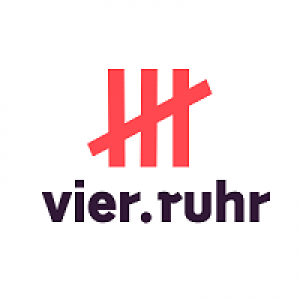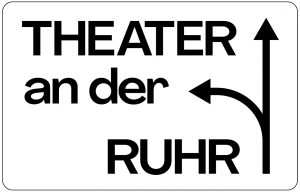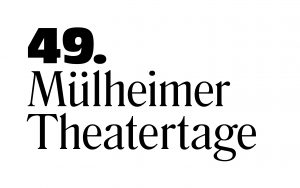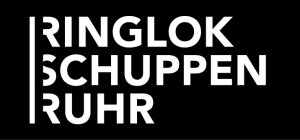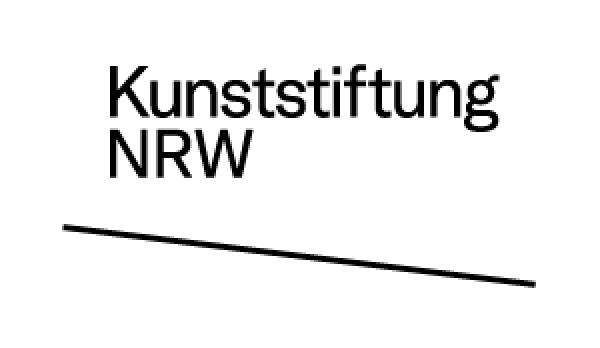Market for Useful Knowledge and Non-Knowledge
Mobile Akademie Berlin, Licence No. 14
Bankless River
On the speed of flow and regulation of water, bodies and ideas
The Market for Useful Knowledge and Non-Knowledge is a major theatre event, a place of knowledge transfer, reading room, stock exchange and advice centre all in one. It has taken place thirty-four times in thirteen countries since 2004. The last stops were Berlin, Frankfurt and Milan.
On 3 February, the Market for Useful Knowledge and Non-Knowledge will take place for the first time in North Rhine-Westphalia and will celebrate its 20th anniversary in Mülheim an der Ruhr with the theme BANKLESS RIVER.
Rivers are mythical places of transition and change. People have always been attracted to them, settlements have been founded on their banks and trade routes have been determined by them. The Mülheim Market for Useful Knowledge and Non-Knowledge brings together 90 experts who will share their knowledge on various topics relating to the Ruhr, Rhine and Emscher, global water cycles, climate change and ecology in 190 individual talks. With the title BANKLESS RIVER, the market also recalls stories and mythologies in which the river symbolises the moment of transition and constant change.
Each conversation can be booked on site for 1 euro.
There will be live broadcasts on the market radio on 8 channels.
The Ruhr is one of the people in Mülheim’s favourite places and an entire region is named after it. Flowing bodies of water create branched networks, shape local structures and open regions to the world.
Mülheim harbour handles over 1 million tonnes of goods per year, while the inland port in Duisburg is one of Europe’s most important logistics hubs, with containers here circulating between Germany, China and the rest of the world.
The Ruhr region is familiar with processes of constant transformation. And the next great change is already underway. In periods of extreme heat, water evaporates from the rivers, leaving living creatures and ships high and dry. During heavy rains, rising waters flatten shorelines and flood entire tracts of land – creating bankless rivers. The migration flows prompted by climate change change the lives of people arriving and those who are already here, while both established and new species have to adapt to changing ecosystems. The river is a dynamic habitat that symbolises the flow of traffic like the bloodstream of a living organism. At the same time it also reminds us of stories and mythologies in which running water symbolises moments of transition and perpetual change.
In a series of 30-minute conversations, 90 experts share a variety of perspectives and stories about flowing water, bodies and ideas. The Market for Useful Knowledge and Non-Knowledge is a site of knowledge transfer, an archive, a reading room, an exchange and advice centre all rolled into one. The Mobile Akademie Berlin’s project has toured the globe for twenty years and can now be experienced in North Rhine-Westphalia for the first time.
Jabbar Abdullah, author and archaelogist
Ann-Kathrin Allekotte, Deputy Mayor of the City of Mülheim an der Ruhr
Lina Atfah, poet and literary scholar
Peter Bankmann, local historian
Fanti Baum, artist and canoeist
Lars Bickmann, mechanical engineer
Dietmar Bleidick, historian
Astrid Breuer, artist
Petra Büse-Leringer, bookseller
Olande Byamungu, lawyer and activist
Gabriel Carneiro, theatremaker
Christoph Clöser, musician and composer
Deniz Czempik, artist
DSCHIRI, DJ and rave organiser
Katharina El Fezazi, pharmacist
Joachim Exner, Works Director for the City of Mülheim an der Ruhr’s businesses
Einar Fehrholz, musician and sound designer
Anne Fetscher, communications manager
Beate Fischer, tourist guide and board member of Mülheim an der Ruhr Historical Association
Bridget Fonkeu, specialist in English lingusitics
Moritz Frischkorn, dramaturg and choreographer
geheimagentur, artists’ collective
Gabriele Gillen, author and dramaturg
Matthias Göttert, Evangelical priest
Marcel Große, sculptor
Hasan M Hera, IT engineer
Ursula Hilberath, Chair of Mülheim an der Ruhr Historical Association
Kamil Hupalo, molecular ecologist
Gunnar Jacobs, landscape ecologist
Gerd Kampf, paddleboarder and flood rescue worker
Johanna-Yasirra Kluhs, dramaturg
Julia Klunker, master goldsmith and special needs educator
Daniel Kötter, theatre- and filmmaker
Stefanie Krohn, environmental educator
Beate Krok, microbiologist and chemist
Peter Leitzen, philosopher
Locuratolo, artist
Marijke Lukowicz, curator
Gilberte Raymonde Mandel-Driesen, adviser on political development and diversity coach
Ulrike Marx, Head of the City of Mülheim a. d.Ruhr’s Climate Protection and Climate Adaptation Unit
Jörg Marx, social planner for the City of Mülheim an der Ruhr
Experts:
Sarah Meyer-Dietrich, author, editor and copy editor
Omar Mohamad, cultural manager
Alia Mossallam, cultural historian
Dagmar Mühlenfeld, former Mayor of the City of Mülheim an der Ruhr
Isi Omari, gastronome
Franziska Pierwoss, artist
Petra Postert, author of books for children and young people
Sebastian Prati, ecologist
Markus Quirmbach, Professor of Hydrology
Tobias Rautenberg, ornithologist and biogeographer
Kai Rawe, historian and former Head of Mülheim City Archive
Bastian Reker, geoscientist
Dorothea Renckhoff, author and dramaturg
Rani Daniel Reschke, trans activist, educator and Chair of 1001plateau e.V.
Kathrin Röggla, writer
Björn Roller, chief fire fighter (HBMz) and senior diving instructor
Andreas Rossmann, journalist
Peter E. Rytz, photographer and blogger
Juliane Rytz, cultural scholar and board member of Netz Bangladesch e.V.
Jaydeb Kurma Sadhu, businessman
Helmut Schäfer, dramaturg and Artistic Director
Elmar Scheuren, historian and former Director of the Siebengebirgsmuseum
Miriam Schmalhaus, engineer and museum specialist
Torsten C. Schmidt, Professor of Water Chemistry and winner of the Ruhr Prize 2022
Olaf Schmidt-Rutsch, historian
Michael Schmitt, physical chemist
Alina Schmuch, artist
Luca Schöneich, lead fire fighter (OBM) and diver for emergency services
Christa Schragmann, environmental educator
Nada Rosa Schroer, curator and cultural scholar
Peter-T. Schulz (Petoschu), author, painter, poet and photographer
Christian Schulze, historian of medicine
Robin Schütz, biologist
Rupert Seidl, actor, voice artist and former Artistic Director
Dirk Sondermann, researcher of legends and author
Jana Kerima Stolzer and Lex Rütten, artist duo
Ralf-Peter Stumme, boat dealer
Su Yu Hsin, artist and filmmaker
Nesrin Tanç, author, literary and cultural scholar
Beate te Kloot, museum education officer
Stephan Treuke, water economist and urban sociologist
Leopold von Verschuer, translator, author, actor and director
Verena Würz, doctor
Ein
Projekt der Mobilen Akademie Berlin, produziert von vier.ruhr
(Theaterallianz aus Theater an der Ruhr, Ringlokschuppen Ruhr und
Mülheimer Theatertagen). Gefördert durch das Ministerium für
Kultur und Wissenschaft des Landes NRW, das NRW Kultursekretariat
Wuppertal und die Kunststiftung NRW.
Credits
Kurators: Anna Bründl, Jonas Leifert
Kuratorial Advisory: Paulina Abufhele Meza, Hasan M Hera, Karola Szabó
Production Management: Susanne Berthold
Furnishings: Cordula Körber
Technical Director: Julius Kindermann
Production Assistance Melissa Müller
Graphics: Malte Jehmlich - sputnic visual arts
Translation: David Tushingham
Licencee : vier.ruhr - Die Mülheimer Theaterallianz
Licence Giver: Hannah Hurtzig - Mobile Akademie Berlin
The title of the Mülheim market was inspired by Hans Henny Jahnn's novel trilogy River Without Shores.

